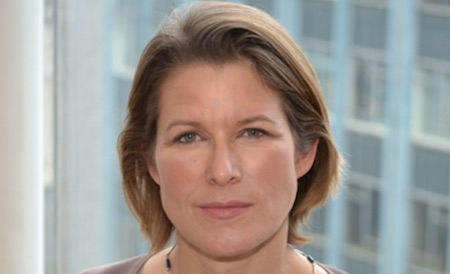Economist Stephanie Flanders, JP Morgan Asset Management's chief UK market strategist, says the direction of the US economy this year will be a more important influencer on the UK and global economy than Brexit or what happens in the Eurozone.
The former BBC economics editor made her comments to hundreds of delegates at the Morningstar 2016 Investment Conference at the Park Plaza Riverbank Hotel in London today in her opening keynote session on The Road Ahead for Markets and the Global Economy.
In a vote during her session on whether the audience of financial advisers and planners thought the UK would vote for Brexit, 80 per cent said they thought the country would vote to remain in the UK.
Ms Flanders said the Brexit vote was, however, clearly very important and she thought the vote would be close but she said that what happened in the US and with the US economy would be a more important global driver although.
She added that a recession in the UK and Eurozone this year was unlikely albeit she expected some softening in some global markets.
She said: "It's an interesting time for UK investors but the UK has been held back by a disproportionate focus on commodity and energy companies and were it not for the referendum I think this would be a positive year for the UK with valuations looking more positive than they have for several years."
Overall she says there is "good news" that fears of recession voiced last year have "receded."
In the UK she says the big question over the next six months is not Brexit but can the US central bank get back on track in terms of raising interest rates. She says US jobs figures suggest that US workers do not expect a recession and there are signs that core inflation in the US is rising as oil prices rise which may influence the direction of interest rates.
Given this background the most important influencer on the UK and global economy will be what happens in the US and to the US economy, she said. Overall she said the prospects for the US look reasonably positive as long as the central bank can keep to its plan to return interest rates to more 'normal' levels.
She says JPM AM does not believe a global recession is likely in the next six months and consumer demand is likely to remain healthy. A recession in the Eurozone is also unlikely, she said.
In terms of Brexit she said she was unable to voice a personal view but looking at the economic numbers there was an argument to say that overall being in the EU had not damaged the performance of the UK economy since it joined the Common Market. If there was a vote to leave there would likely be a short term economic shock but in the longer term new opportunities could open up. There were, therefore, economic arguments for and against exit.
She said even if the referendum result was to remain in the EU another referendum in the next 10 years was possible.
Turning to emerging markets, which have underperformed significantly in recent years, she said prospects were looking better and it may be time to look at them again.

